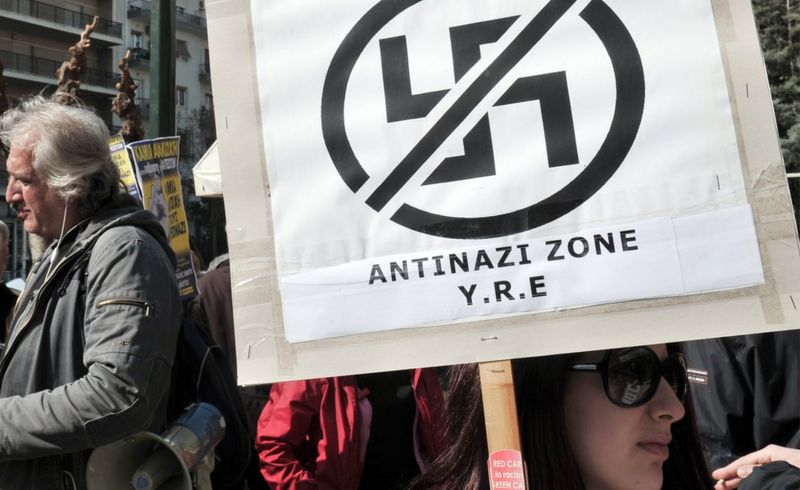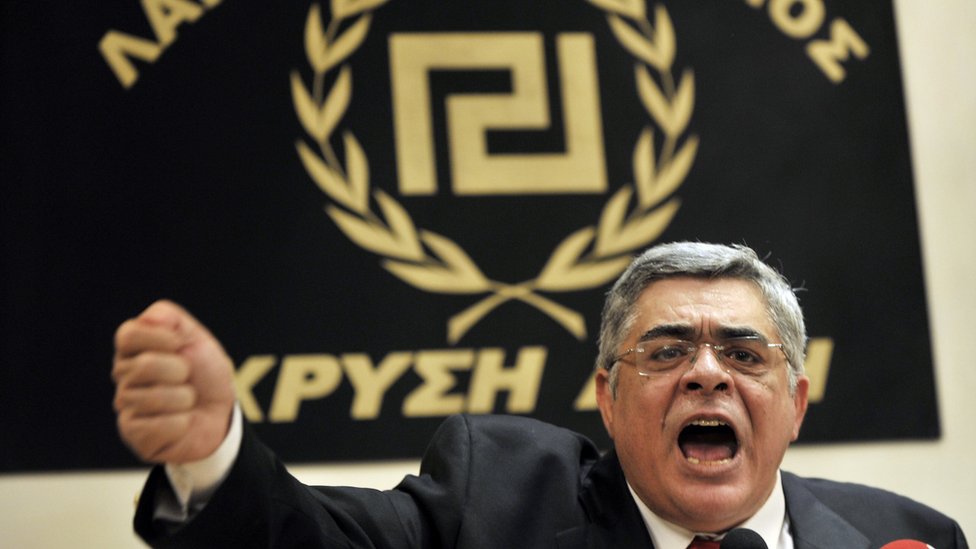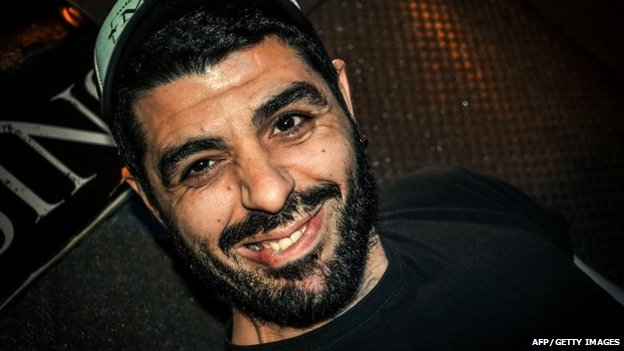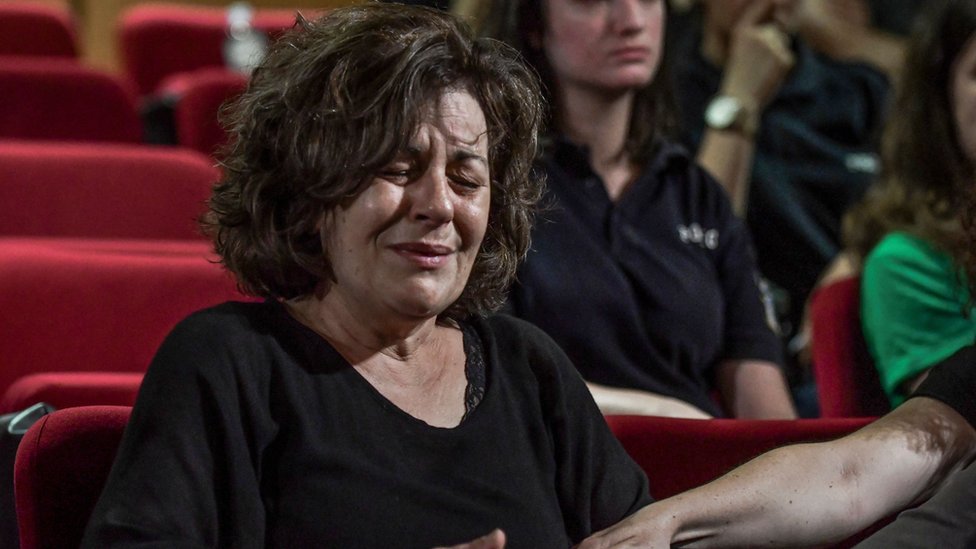Neo-Nazi Party Crime Trials

For more than five years, 68 people have been on trial in Greece accused of criminal activities as part of a neo-Nazi party.
The leader of Golden Dawn and many of its former MPs will hear on Wednesday whether they have been convicted.
The criminal inquiry into the party began with the murder of an anti-fascist rapper in 2013.
The group attracted support in the aftermath of the financial crisis but no longer has MPs in parliament.
Some 2,000 police are being deployed amid plans for rallies to be held around the Athens Appeals Court. Hundreds of witnesses have given evidence in the trial, which this year has been hit by the Covid-19 pandemic.
Who’s on trial?
At the centre of the trial are Golden Dawn leader Nikos Michaloliakos and 18 ex-MPs who were elected in 2012 when the neo-Nazi party came third in national elections on an anti-immigrant, nationalist platform.

After they won almost 7% of the vote in May 2012, emboldened supporters attacked political opponents and migrants.
Also on trial is a supporter of Golden Dawn, Giorgos Roupakias, who was convicted of murdering anti-racist musician Pavlos Fyssas. He was chased down by thugs and stabbed in Piraeus in September 2013.
What are the charges?
Amongst the charges for the court to decide is whether Golden Dawn – Chrysi Avgi in Greek – is itself a criminal organisation. If the judges find that is the case, the movement’s leadership would then be seen as members of a criminal gang.
As well as the deadly stabbing of Pavlos Fyssas, the group has also been linked to dozens of other violent attacks on migrants and left-wing political opponents.

The charges include the attempted murders of an Egyptian fisherman in 2012 and of communist activists in the PAME union.
If found guilty, the 68 defendants face jail sentences of between five and 20 years.
Who is their leader?
Nikos Michaloliakos founded the movement in the mid-1980s and was admirer of Nazism and a Holocaust denier, giving the Hitler salute at party rallies.
But he has always denied any knowledge of the Pavlos Fyssas murder, condemning a 25-year “political conspiracy”. When police raided his home in 2013, they found weapons and ammunition.

Golden Dawn officially denied being a neo-Nazi movement, but its badge closely resembled a swastika, some senior members praised Adolf Hitler, and the clothing of choice at anti-immigrant protests was black T-shirts and combat trousers.
Witnesses told the trial that members were trained to handle weapons and used Nazi symbols.
However, chief prosecutor Adamantia Economou has called for the party officials to be cleared, arguing there was no evidence they had any part in planning or carrying out the series of attacks.
What reaction has there been ahead of the verdict?
There has been disgust at Golden Dawn across the political spectrum in Greece.
Centre-right Prime Minister Kyriakos Mitsotakis wrote at the weekend of Greece’s “traumatic, painful, and unfortunately, very bloody” experience of Golden Dawn, while ultimately praising the country’s democratic success in getting rid of it both in parliament and daily life.
Left-wing opposition leader Alexis Tsipras was adamant that “members of this criminal gang must go to prison”.
Nils Muiznieks of Amnesty International said the trial had been a serious test for Greek justice but that a “clear and unequivocal message” could help deter future racist violence.
Meanwhile, the Jewish cemetery in Athens was daubed this week with anti-Semitic graffiti and Nazi slogans, prompting condemnation from Greek ministers and the Jewish community.



